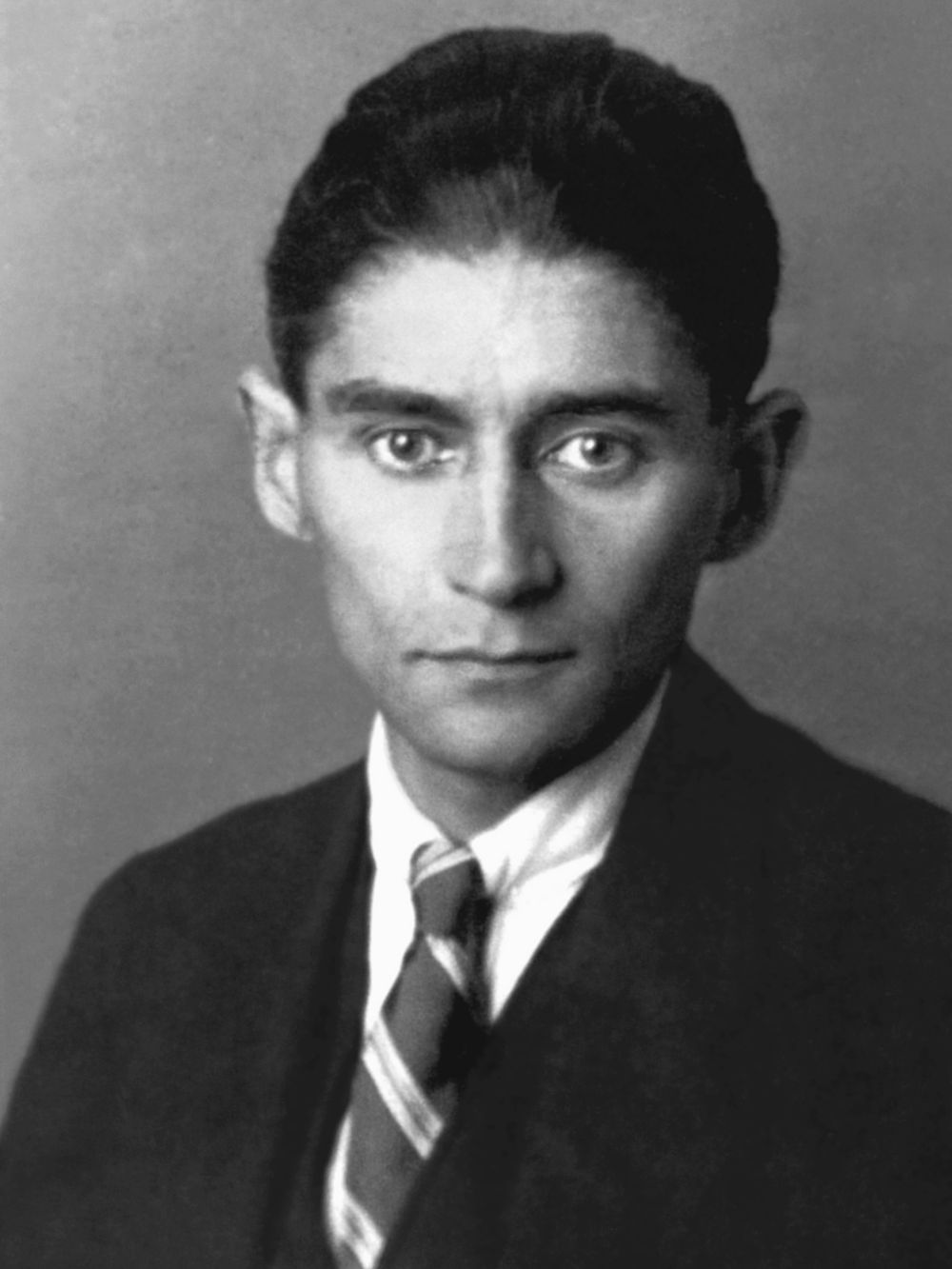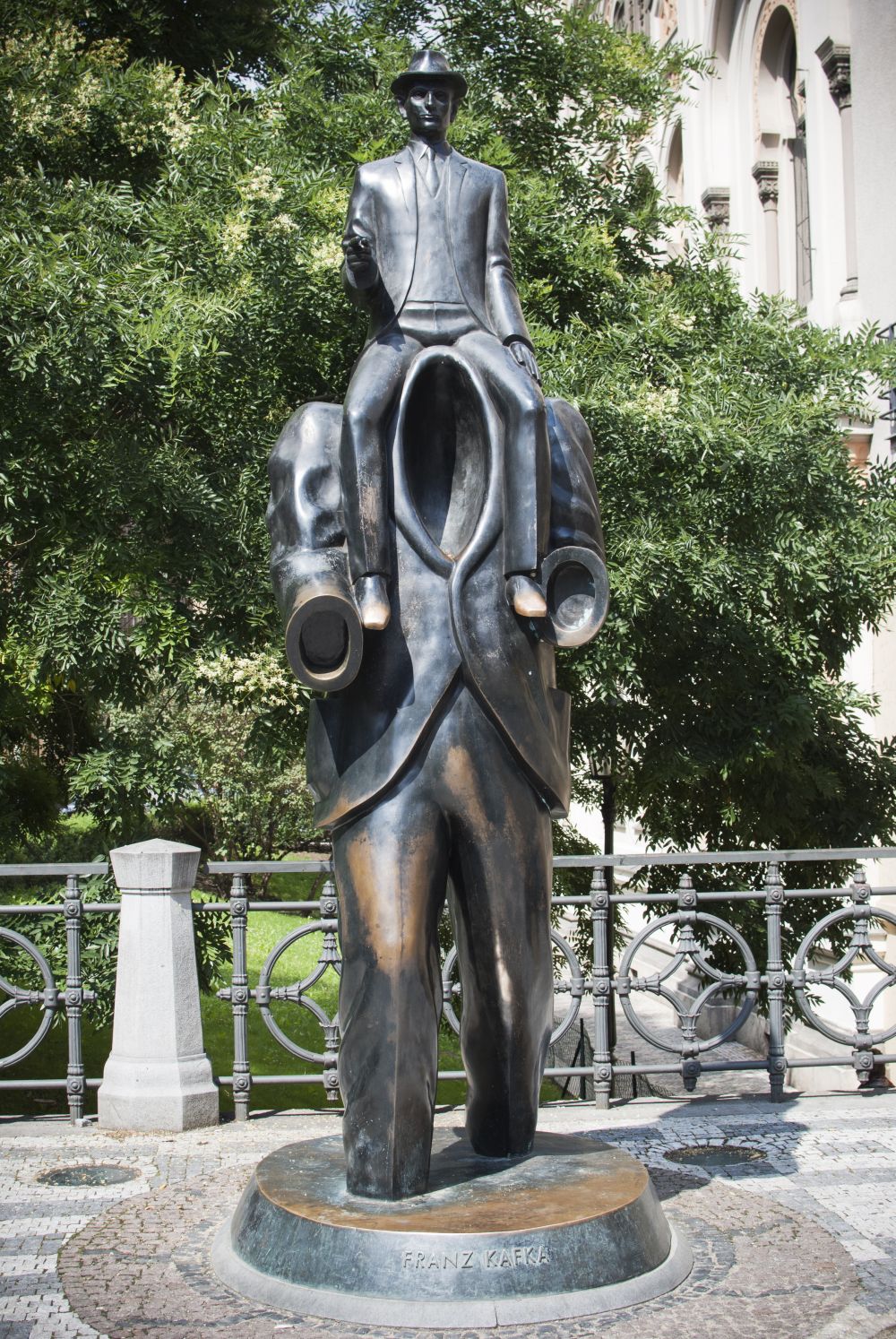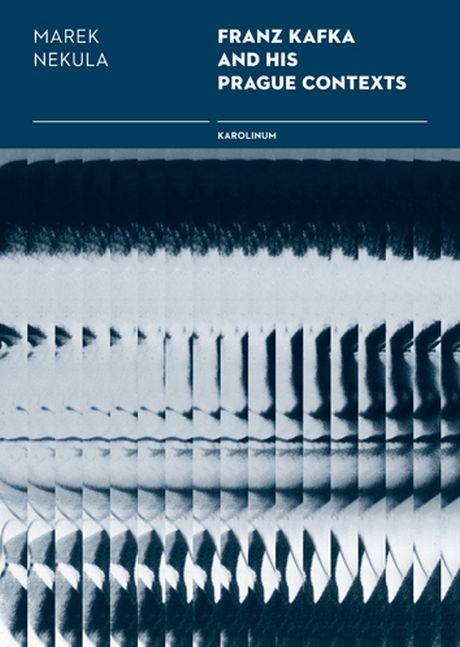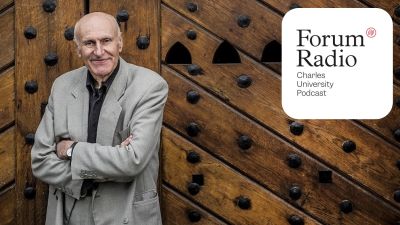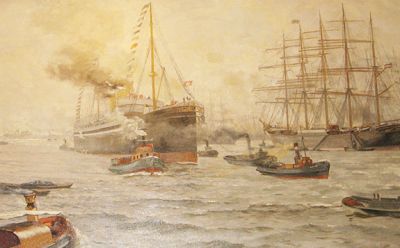Last week, many literati marked the centenary of the death of the writer Franz Kafka. What can contemporary readers find in his work? And do any unanswered questions remain? The matter is one of continuing importance for Professor Marek Nekula, who has been studying Kafka's work since the early 1990s, when he worked at the Faculty of Arts of Charles University. Today he lectures at the University of Regensburg, where he heads the Bohemicum Center for Czech Studies. On the German side, together with the Faculty of Social Sciences of Charles University, he is also developing a double-degree Bachelor's programme in Czech-German Studies. For his professional activities and many years of close cooperation, Charles University awarded him the honorary title of doctor honoris causa in 2021.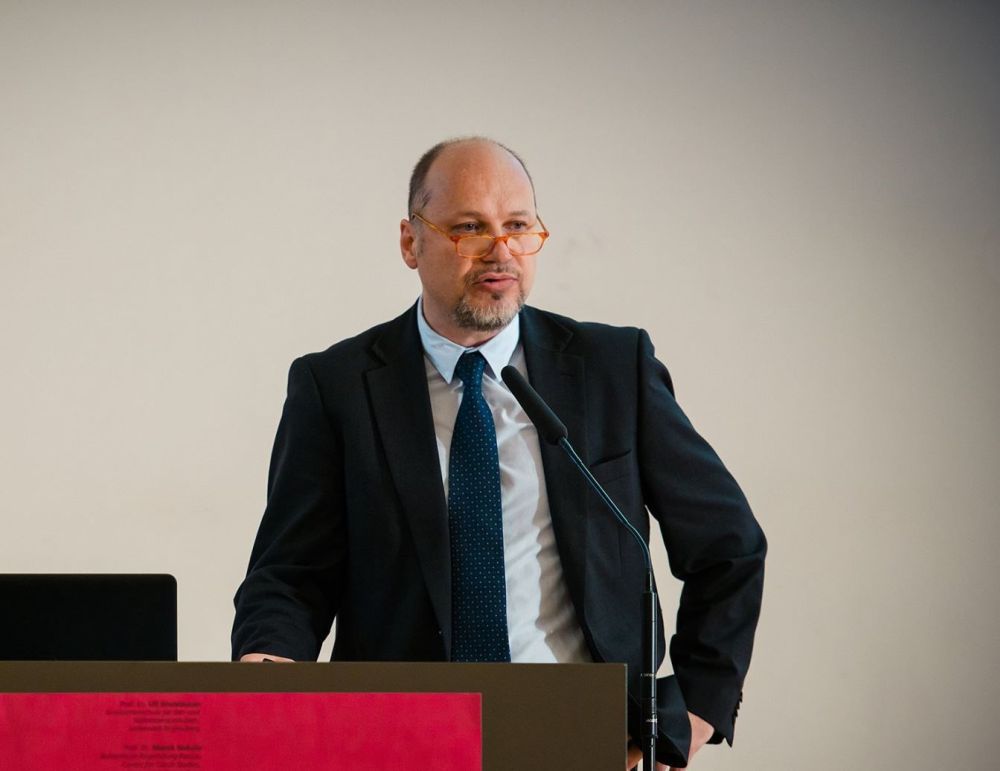
You contributed to the first complete edition of Kafka's works in Czech, the last one being Letters to Friends and Other Correspondence, published in 2007. What exactly was your task in this project, which began in 1997?
The idea came from the Franz Kafka Publishing House. The editorial board also included Josef Čermák, Václav Maidl and Jiří Stromšík, and was chaired by Kurt Krolop. I knew most of the people on the editorial board from German studies in Prague, and I was in contact with the publishing house because I was analysing for them whether and how it would make sense to publish official and private correspondence Kafka that conducted in Czech (as opposed to German, which he used in his literary work – editor’s note). I also collaborated with Hans-Gerd Koch, the publisher of the German critical edition of Kafka's correspondence. The editing and translation developed into an interest in the form of Kafka's Czech. It was then that I became more immersed in Franz Kafka and thus began my lifelong interest in his work.
You said in an interview that Franz Kafka is a lifelong challenge for you; can you elaborate on that?
I became interested in Kafka from a linguistic point of view. First, I looked at his Czech, then I looked at his German and more generally at his linguistic biography. This is a micro-level view. But then there is also the macro level, which is how individual linguistic biography works in the context of Prague, the monarchy, the successor states, and in general in the context of the linguistic ideologies of Central Europe. As you get more and more deeply involved, you become aware of increasingly broader contexts, addressing initially detailed questions in increasingly broader contexts. This is the challenge.
When you deal with Kafka so intensively, you naturally wonder whether and how language is also reflected in literary texts. Questions of language or communication, negotiation and allocation of identity, cultural and intercultural issues, all these are present in Kafka's literary texts.
The challenge is also that there is a big difference between his personal and literary texts. While what is sophisticatedly yet clearly articulated in the personal texts is not easy to grasp in the literary texts. You have to overcome the initial temptation to see specific constellations and simple allegories in his literary texts; you have to look for the more general models that Kafka offers.
In the years that I have been studying Franz Kafka, I have some familiarity with him, yet as I read new methodological or theoretical studies, I realise again and again that it is [endlessly possible] to look at his work in a new and different way, and this is also a challenge, or rather an enrichment.
Is Franz Kafka's work still relevant for contemporary readers?
That is a good question. Not so long ago I wrote an article called Kafkas Nomaden (Kafka's Nomads). This is based on Kafka's text The Old Leaf, which tells the story of the invasion of the nomads from the point of view of the indigenous community. Feeling threatened, the nomads are dehumanised by the narrator from the home community and at the same time by the majority in his narrative, deprived of human language, behaviour and culture. The whole thing is a bit like fake news. The text has been variously fleshed out in the past, including biographically in relation to migration in the context of the First World War, when Jews from eastern Halych fled the front and pogroms to Vienna and Prague. But it can also be read as a story that addresses universal issues of migration or immigration. For a change, the novel The Missing (Amerika) is about emigration. This is one example of Kafka addressing current issues of the modern world on a general level. His work is thus still alive, it makes sense to read it, it touches on contemporary debates.
In any case, it is more fruitful to understand Franz Kafka through his texts and to leave him in the element that is most inherent to him, rather than [to transpose him to other media] such as his likeness on T-shirts, mugs or other souvenirs in the tourist industry, or in Warhol's pop art renditions.
What is it that has turned Kafka into an empty body or outright tourist kitsch that you just talked about?
I don't think I have a good answer to that. Certainly, too close a connection between Kafka and Prague plays a role. And that's a long-term process. In 1947, a book was published called Franz Kafka and Prague. It also contains a map of Prague, in which places connected with Kafka's life are inscribed. You'll come across the same thing later in Kafka's tourist haul.
Right from the beginning of the interest in his work, especially in the Czech context, there is a strong emphasis on biography and the connection with Prague. Pavel Eisner has been trying to interpret Kafka's work from the Prague area since the 1930s, working with the thesis of the triple ghetto. This is then developed in various pictorial publications on Kafka, where the connection between Kafka and Prague is reinforced again and again. It's really just a biography. Kafka's literary texts, with the exception of Description of a Struggle, do not take place in Prague. And so in this context they fall into the background.
However, Kafka's touristic exploitation has only been an issue since the 1990s. This is reflected negatively in Kundera's novel Not Knowing, and ironically in Topol's prose novel The Waste Land.
How do you see it?
It's an interesting phenomenon. But I don't have a theory about it. Perhaps it reflects a shift from literature and words to visual media. And the visual gaze in the case of Kafka suppresses the complex text in favour of his body, physiognomy, face. This can be seen, for example, in the monument to Franz Kafka by sculptor Jaroslav Róna (pictured left). He relates it to Kafka's short story Description of a Struggle, which he links to the image of Kafka's body. The monument thus unifies and simplifies the text in terms of meaning, giving it a single, biographical dimension of meaning. The text is suppressed, the body associated with biography comes to the fore.
One should probably think about this more deeply. Anyway, if there is too much of the body, one wonders why Franz Kafka could not be reflected through non-figurative, abstract representations?
On the occasion of the centenary of Franz Kafka's death this year, conferences related to his work are being held all over the world, new monographs and studies are being published, and exhibitions are being held. Are there still any unanswered questions related to his work for literary theorists?
Now, in May, Andreas Kilcher's book Kafkas Werkstatt (Kafka's Workshop) was published. As the title suggests, it deals with the assumptions of Kafka's literary texts as they appear in Kafka's personal texts, among others. These may or may not be connected in some way. This question is still interesting and recurs in different forms and variations, whether in literary scholarship or in historiography.
Through Kafka, moreover, we can gain insight into the contemporary functioning of literature and culture. There is still much to refine. Franz Kafka is also a good example of what the German-Bohemian team at the Institute for Czech Literature of the Czech Academy of Sciences is currently researching, namely how to historiographically grasp and correlate literature in the Czech lands written in different languages. Kafka wrote literature only in German, but of course he knew Czech literature quite well, and not only Czech literature. But we also have productive multilingual authors, for example Jiří Mordechai Langer. The question is how to narrate literature written in Czech countries in different languages and how this interaction and interculturality or transculturality permeates the texts.
These questions come back in a different form with regard to exile later on, for example in the work of Milan Kundera, who switched to French in his work. In German, such authors include, for example, Jiří Gruša or Libuše Moníková. Franz Kafka's work, therefore, still raises questions that are relevant not only to him but other authors as well.


